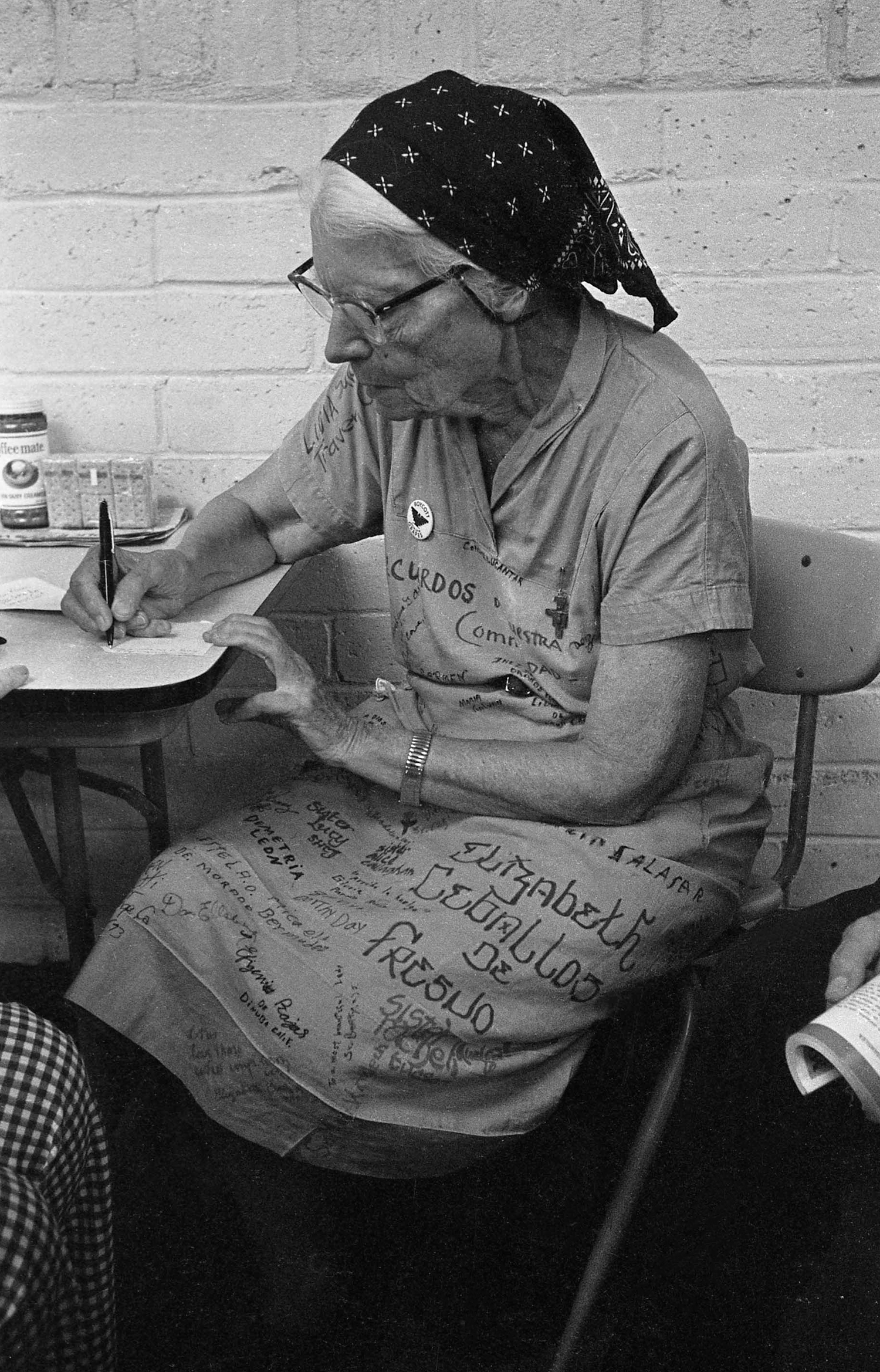Dorothy Day
Dorothy Day
Dorothy Day (left, wearing glasses) is at the Fresno County Jail, August 1973. Photo by John Kouns.
In Fresno County alone, there were 1993 people jailed, including seventy priests and nuns—Dorothy Day was one of them. The presence of religious people in jail called attention to the farm workers who couldn’t be released on their own recognizance, even though the option was available to the priests and nuns.
Dorothy Day (center) is at the Fresno County Jail, August 1973. Photo by John Kouns.
Dorothy Day and a priest at the Fresno County Jail, August 1973. Photo by John Kouns.
Dorothy Day at the Fresno County Jail, August 1973
On August 8, Joan Baez, her mother, and Daniel Ellsberg visited the farm labor camp where Dorothy Day and other strikers were being held. Joan Baez sang a poignant prison song to the prisoners in the yard, turning her back to them and singing directly to other prisoners brought to the dining room. Daniel Ellsberg mentioned that the thought of Cesar Chavez had given him courage during his two-year ordeal in the courts. It was a peaceful Sunday, and Mass was held in the evening. The Mexican girls in the camp sang, clapped, and taught the sisters some Mexican dancing. The power of prayer seemed to have some effect, as Mr. Fitzsimmons, president of the Teamsters, canceled or disavowed contracts signed by another Teamster leader in Delano.
The morning after her release from jail, Dorothy Day arrived at the courthouse park for a press conference called by César Chávez. She climbed on a bench next to Chávez and said, “This strike is not just for wages, hours, or conditions. It involves men’s dignity.” She also mentioned the 60 priests, ministers, and nuns who were among the 500 people jailed for picketing. “To see the church in jail,” she said, ” is to see real Christianity.”
Later, she showed Chávez her memento of the days in jail, a green jail uniform he called her “habit.” The front had the signatures of the women imprisoned with her and on the back was the black eagle of the UFW and “Viva la Causa.” She asked Chávez to autograph the uniform. “But I wasn’t in jail with you,” said Chávez, who ended up signing Day’s habit.
Tom & Ethel Bradley Center
California State University, Northridge
18111 Nordhoff Street, Northridge, CA 91330
Phone: (818) 677-1200 / Contact Us


